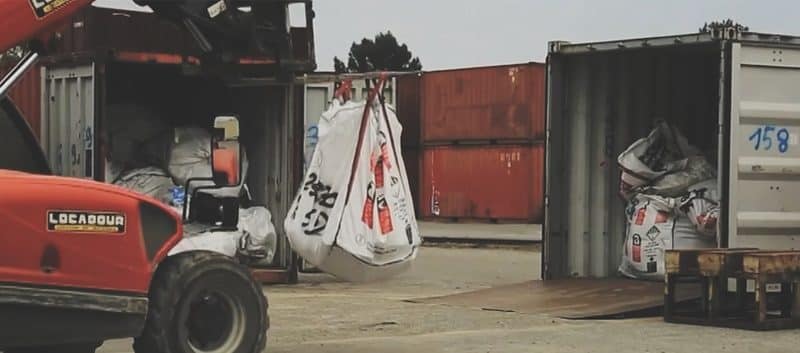Inertam, a subsidiary of the French group Europlasma, has won a tender from the Algerian electricity and gas company Sonelgaz to manage asbestos waste from the dismantling of the steam power plant near the port of Djen Djen, in the Algerian town of Jijel. The contract covers the treatment of 7,000 tonnes of asbestos waste over the next three years.
Following in the footsteps of Algeria’s private sector, it is now the Algerian government’s turn to place its trust in Inertam, a company specialising in the vitrification of asbestos waste using plasma torches. The subsidiary of the French group Europlasma will process asbestos waste from the dismantling of the steam power plant near the port of Djen Djen, in the Algerian town of Jijel. Inertam was selected in July 2023, following a call for tenders issued by the Algerian electricity and gas company (Sonelgaz). To respond to the call for expressions of interest, Inertam joined forces with a consortium of Algerian companies made up of Géant général service, Entreprise des travaux hydrauliques et protection de l’Environnement (ETHPE) and Sogeb Décontamination.
Inertam will collect and recondition asbestos waste from the Djen Djen steam power plant. The waste will then be sent to Inertam’s plant in Morcenx-la-Nouvelle, France, for vitrification within six months of being received on site, “in accordance with Basel Convention standards”.
Read also – AFRICA: the circular economy, an ally for the ecological transition
The target has been set at 7,000 tonnes of asbestos waste in 3 years, corresponding to total sales of nearly €15 million, “adjustable according to the actual tonnage and type of waste received”, says Europlasma.
Inertam’s very-high-temperature process destroys the toxicity of asbestos waste and transforms it into an inert, recycled material called Cofalit. This by-product is used for energy storage in solar power plants. The company is authorised to process 8,000 tonnes of asbestos waste a year from more than 160 countries that are signatories to the Basel Convention.
In addition to developing the hazardous waste treatment sector in Algeria, the challenge is to protect the environment and public health. When inhaled, asbestos waste can reach the pulmonary alveoli and cause serious illness. Asbestos fibres also enter the environment through natural and anthropogenic pathways. This new contract follows the signing of cooperation agreements with Algerian companies NCC Environnement and SO.GE.B.ZRITA, for the collection, transport and treatment of special waste.
Inès Magoum






